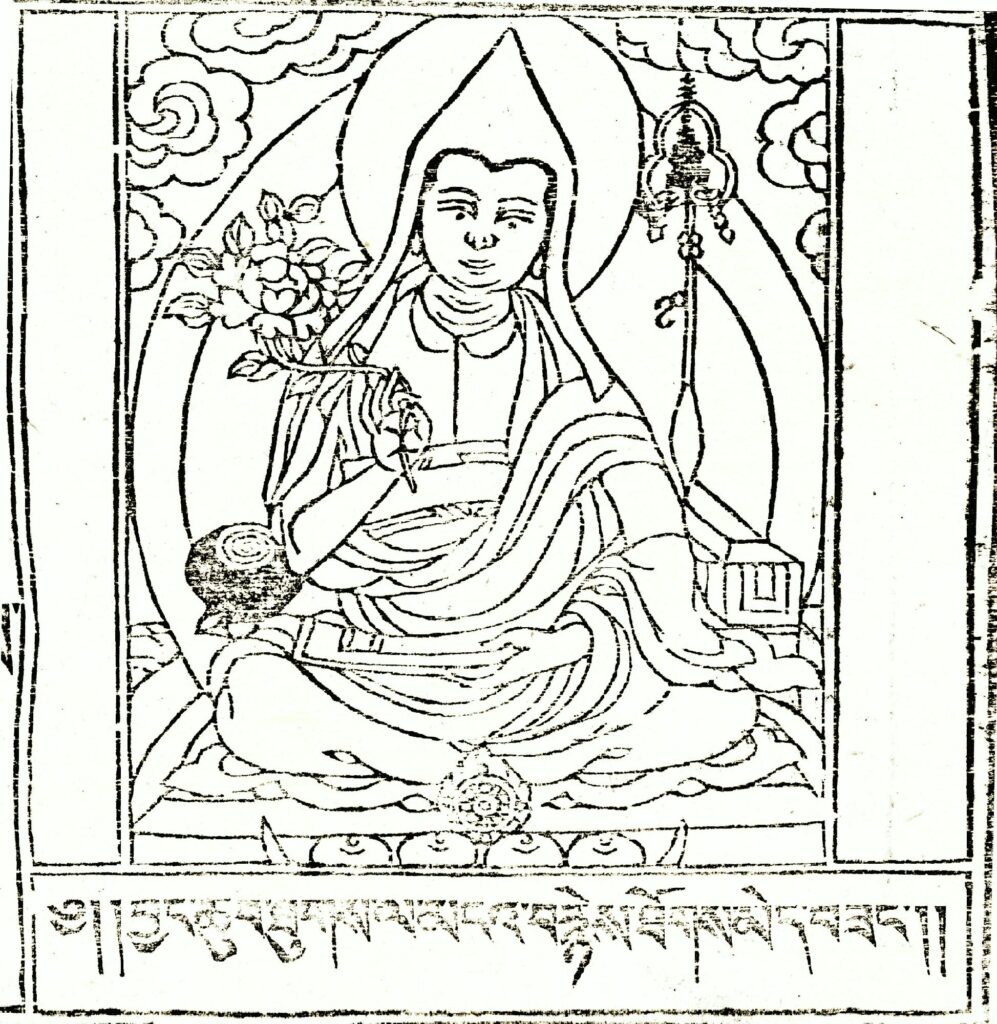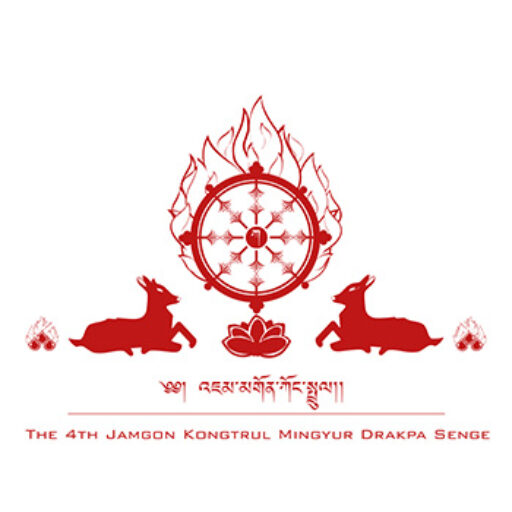Gyalsé Tokmé Zangpo & the 37 practices of Bodhisattvas
H.E. JAMGON KONGTRUL RINPOCHE will teach online the 37 practices of Bodhisattvas from Gyalsé Tokmé Zangpo.
-
-
- The schedule of the program ( time is CET) :
30th of March at 18:00
31st of March at 16:00
06th of April at 16:00
07th of April at 16:00
- The schedule of the program ( time is CET) :
-
Gyaksé Tokmé Zangpo and the 37 practices of Bodhisattvas
Gyalsé Tokmé Zangpo, also known simply as Tokmé Zangpo, was a Tibetan Buddhist master who lived in the 14th century. He is best known as the author of the famous Tibetan Buddhist text “The Thirty-Seven Practices of Bodhisattvas” (སེམས་ལ་བཅུ་བདུན་པ་ལས་གྲོལ་གཞུང་ཆེར་བ།), which is a concise guide to cultivating the bodhisattva path, or the path of enlightenment for the benefit of all beings.
 Not much is known about Tokmé Zangpo’s early life or background, but he is believed to have been born in Puljung, southwest of the Sakya Monastery in the Amdo region of Tibet.
Not much is known about Tokmé Zangpo’s early life or background, but he is believed to have been born in Puljung, southwest of the Sakya Monastery in the Amdo region of Tibet.
At fifteen years of age, he traveled to Bodong Evamling Dharma Center where he devoted his time to textual study under the tutelage of Lama Kunga Gyeltsen. After being examined on Abhidharma by Jamyang Nyima Gyeltsen and from his many scholarly accomplishments, he earned the epithet Tokme Zangpo (thogs med bzang po), which translates as “non-obstructed good”. Later in his career, he was also given the title of Gyalse, meaning “son of the Buddha,” or bodhisattva. He served as the abbot of Bodong Evamling for about nine years, from 1326 to 1335.
In 1337 he moved to Ngulchu Chodzong (dngul chu chos rdzong) where he undertook retreat for over twenty years. During this time he continued to teach, offering both Lamrim and Lojong instructions and related topics to the renowned Sakya scholar Rendawa Zhonnu Lodro. He also gave him teachings on the Bodhisattvacāryāvatāra. Tokmé Zangpo is listed as the seventy-third in the Lamrim lineage.
Gyalsé Tokmé is said to have composed some one hundred and fifteen works, some of which were printed in a single volume. Chief among these are A Commentary on the Seven-point Mind-training (blo sbyong don bdun ma’i khrid yig), the Thirty-seven Practices of The Bodhisattva (rgyal sras lag len so bdun ma), and The Ocean of Good Saying (legs par bshad pa’i rgya mtsho), a commentary on the Bodhisattvacāryāvatāra.
His masterpiece, the Thirty-Seven Practices of a Bodhisattva, contains short verses or slogans that lead one through the core of the Buddhist path—the mind of compassion. In the text, he informs the reader that this was composed in the Ngülchu Rinchen Cave.
He became a highly respected teacher and practitioner, known for his wisdom, compassion, and adherence to the bodhisattva ideal.
Tokmé Zangpo’s most enduring legacy is his composition of “The Thirty-Seven Practices of Bodhisattvas.” This text consists of thirty-seven verses that offer practical instructions on how to live a life of compassion, wisdom, and altruism. Each verse addresses a specific aspect of the bodhisattva path, covering topics such as generosity, ethical conduct, patience, diligence, meditation, and wisdom.
“The Thirty-Seven Practices of Bodhisattvas” has been widely studied and revered in Tibetan Buddhism for centuries. It continues to be recited, studied, and commented upon by practitioners around the world, making Tokmé Zangpo a revered figure in the Tibetan Buddhist tradition.
While the details of Tokmé Zangpo’s life are scarce, his profound teachings on compassion and the bodhisattva path continue to inspire countless individuals on their spiritual journey toward enlightenment and the alleviation of suffering for all beings.
Tokmé Zangpo’s teachings emphasized the importance of cultivating compassion and altruism as essential qualities on the path to enlightenment. His writings continue to be studied and revered by practitioners of Tibetan Buddhism and have been translated into numerous languages.
While specific details about Tokmé Zangpo’s life are limited, his legacy lives on through his profound teachings and the impact he had on the Tibetan Buddhist tradition. He is remembered as a compassionate and wise master whose insights continue to inspire and guide spiritual seekers on their journey toward awakening.
The event is organised by the Hungarian Khyenkong center.
The registration is open.
The 37 practices of Bodhisattvas
choose the version you would like to download

